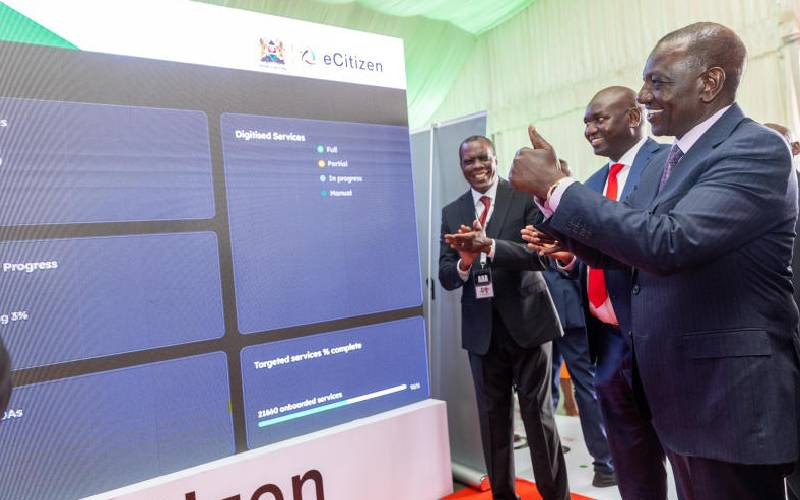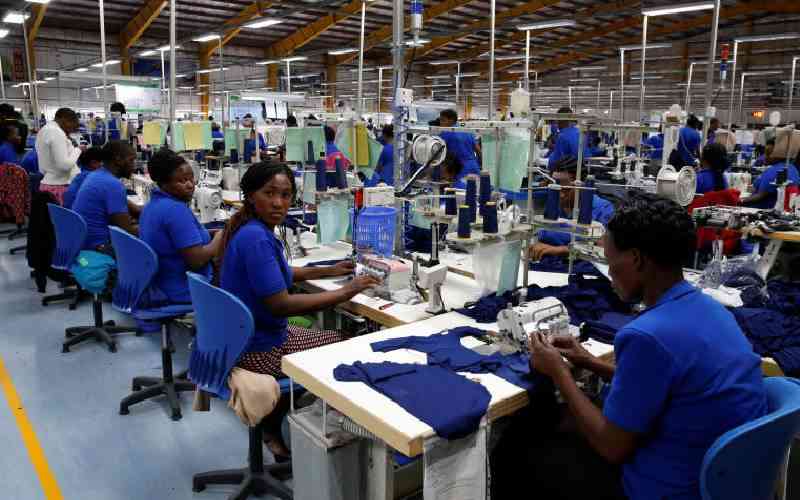×
The Standard e-Paper
Kenya’s Boldest Voice

Central Bank Governor Patrick Njoroge, Kenya Bankers Association (KBA) Chief Executive Habil Olaka and his KCB counterpart Joshua Oigara at the opening of the 7th Edition of the KBA Annual Banking Research Conference in Nairobi last week. [File, Standard]
The business of a bank is to take deposits and offer interest to its saving clients, give out loans, then charge a higher interest on borrowers, taking home the difference as profit.







